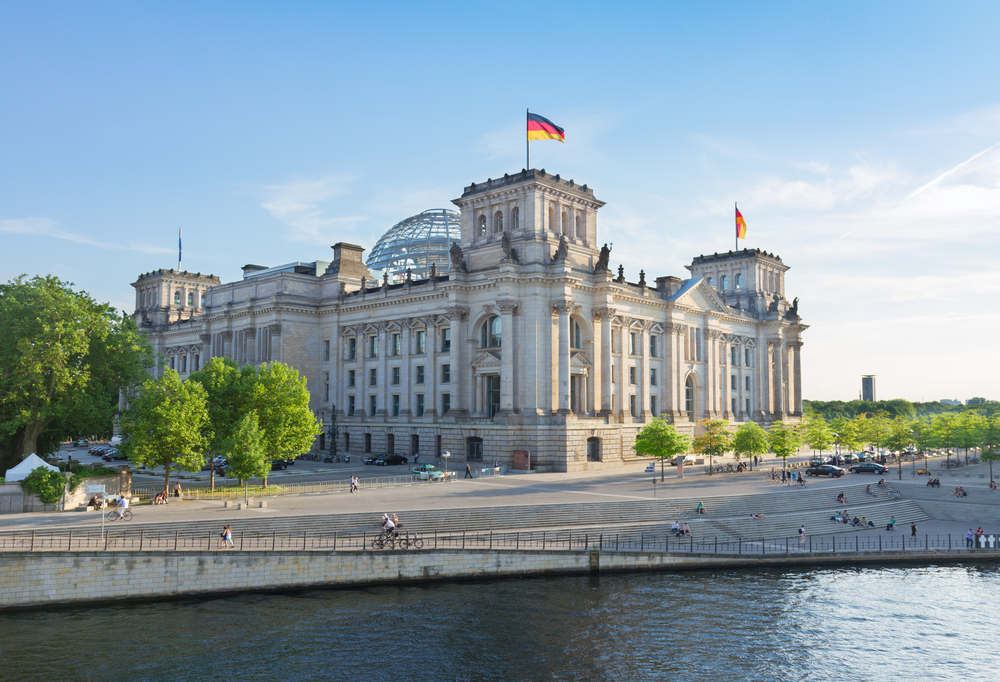
Exposing “far-right conspirators” in Germany: a show in the best Orwellian tradition
The arrest of ideologically alien political criminals in Germany in the 1930s could hardly have surprised anyone. Nonetheless, at the beginning of the 21st century, as Berlin positions itself as the leader of the liberal EU, it arouses both mild irony and quite strong fears for the future of political freedoms. After the conflict in Ukraine, the degradation of European democracy over the last 15 years began to be more and more obvious. The German police, at the initiation of the government, implemented a typical totalitarian scenario similar to the “Reichstag fire” of 1933, when the exposure of an imaginary coup d’état allows to rally society against the internal enemy, distract the population from economic problems and start repressions against the political opposition. Only this time, instead of arson, an alleged group of “far-right and monarchist extremists” was preparing to storm the Bundestag and assassinate Chancellor Olaf Scholz.
However, the insignificant original features of the disclosure of this plot have been lost against the background of the classic inherent moves in the cases of any struggle against “enemies of the state and the people”. The overblown scale and deliberate theatricality of the operation to arrest the alleged criminals, who looked more like a scene from an expensive American action film than the real work of the special services, was outstanding. On the night of December 7, German police special forces conducted an operation in 11 federal states to arrest 25 people. About 3,000 members of the security services searched 130 sites at the same time, resulting in 50 people being investigated. Before that, the country’s police had repeatedly shown their incompetence in dealing with real organized crime and protests by Antifa and anti-globalization activists, who crashed German cities and burned hundreds of cars with impunity.

But in this case, the situation was quite different: the well-equipped special police officers pictorially neutralized dangerous state criminals. There is no doubt that they knew very well that they would meet no resistance from the “rioters” and the television picture of their professional work would be almost perfect. The defeat of the conspirators was the most ambitious anti-terrorist operation in the country’s history that was completely orchestrated to ensure that there were no excesses. In this way, with the active support of the media and the mountain of prepared facts, it left no room for debate about the guilt of the suspects. The media played a special role in this operation, perhaps even more important than the police. The pretense of solving the “crime of the century” was perfectly demonstrated by their fantastic awareness. When almost every editorial board in a country knows in advance about a covert operation, it is not a covert operation, but a PR one. Julian Reichelt, former editor-in-chief of Bild, directly pointed out that the valiant police raids were nothing more than a show prepared especially for a naïve population audience. It has been stated that the operation began at 6 a.m., and two hours later Spiegel, Die Zeit, and Bild published detailed articles about its progress and results, which means that they received all the necessary information in advance.
The rebels have also been linked to the conservative opposition party Alternative for Germany, which is dangerous to the Scholz government and which the authorities label as almost fascist or Nazi. One of the detainees was Birgit Malsack-Winkemann (58 years old), a former member of parliament for this party, which is a good reason to accuse the party structure and its complicity. Some media almost comically pointed out that, as a member of the Bundestag, she knows her way around the parliament building and since she is also good at shooting, it could be a hint of her personal involvement in storming the building with the rebels. Like a bad political novel, one of the suspects in the coup attempt had a list of 18 “enemies” that included the name of Foreign Minister Annalena Baerbock. Apparently, according to the scenario plan of the organizers described as “successful operation of special services” the arrested “fascists” should have especially hated her for her selfless struggle for ecology, democracy, and humanism. According to them, her responsibility also consists in destruction of German foreign policy and her work is tainted by extreme unprofessionalism. The investigation is also trying to build into the case the image of an external enemy, which is traditionally Russia. Indeed, among the 23 main suspects there is a Russian citizen Vitalia B. and this was enough for the media to open up opportunities to inflate the scale of the conspiracy to an international level.
Even more comically, the German authorities drew their inspiration for creating this coup d’état from scratch not only from past dictators, but also from the quite modern Tom Tykwer series Babylon-Berlin. In the series, the far-right wanted the Hohenzollerns back on the throne, and the detained rebels wanted to do the same, only the new monarchy was to be headed by an aristocrat from Thuringia, Prince Royce XIII. As in the TV series, the plan was to seize the Reichstag by military rebels. Both the movie and the real rioters discuss their plans in the castle and receive support which is almost analogous to the Russian trail in the investigation, since in the movie some support comes probably from the Soviet Union. In the real scenario, the police screenwriters even bypassed Tykwer, and attributed to the conspirators the desire to stage a revolution by turning off the lights in Berlin. All in all, the whole legend of the “revolutionaries” looks very far-fetched. Royce and the campaign don’t look like dangerous right-wing radicals, but a marginal sect of pensioners obsessed with fighting the Freemasons and the world government. The only more or less serious figure is the former Bundeswehr Colonel Maximilian Eder, arrested in Italy, who is still considered one of the country’s best anti-terrorists and was one of the founders of the KSK Kommando (Special Forces Command from Germany Army).
Yet, this overly theatrical and implausible show has very practical and serious goals for the German government. First, it distracts the public’s attention from the deplorable state of the country’s economy. Obviously, Olaf Scholz and his ministers cannot reverse the negative situation. Despite the fact that the rate of inflation has slightly decreased, as in November it was 10%, there is very little reason to rejoice. If the inflation was formerly driven by expensive gas and oil, now the prices of a growing range of goods other than energy carriers are increasing and food prices are especially hitting the population. The rise in prices was especially strong for electricity for household needs, which rose 53.2% year on year. Natural gas prices have more than doubled since 2021 (+ 112.2%), and central heating has risen by 36.6%. Food prices in November increased by 21.1% in annual terms, the rise in prices in this segment more than doubled the overall rate of inflation. Some food prices have increased quicker compared to October, when the increase was +20.3%. The most expensive groups of products in November were fats and oils (+ 41.5% year on year), dairy products and eggs (+ 34%), bread and cereals (up 21.1%) and vegetables (up 20.1%). In such a situation, the solution was to shift attention to the “hot” political topic, and the Reichsbürger rebellion that was uncovered proved to be just right.

Another practical purpose is to clamp down on the real non-systemic opposition, which is becoming dangerous as democracy is winding down. The Left has already had to soften its stance earlier. In the last election in 2021, the party scored 4.9% of the vote and failed to pass the 5% threshold, forming a faction only because of its three deputies who were elected in single-mandate districts. The party received informal signals from the authorities that if it did not become more flexible, there would be no chance to win a parliamentary seat in the elections of 2025, and it would be left out of the Bundestag, which would in fact give it a political embarrassment. Under this pressure, it was decided to prohibit Left MPs from engaging in “discrediting” foreign and domestic political rhetoric, and an attempt was made to expel the two most odious MPs, Sahra Wagenknecht and Diether Dehm. Even though these threats have not yet been fully realized, the political activity of these politicians has been reduced and the party was dissociated with the help of the government.
However, it was the Alternative for Germany (AfD for Alternative für Deutschland) party that posed the main threat. Since the party has a rating of 13-14%, which guarantees them the formation of a faction in 2025, the levers of pressure on it from the government were much less effective and efficient, and the position of the party leadership was more rigid. There is no doubt that in the light of the revelation of the conspiracy, German authorities will once again try to link the party to far-right extremists and to a “Russian trail”. At present, the German prosecutor’s office is examining the case materials to find facts that could be presented as charges against the party. Even if no intelligible information is found, the hysteria in the mainstream controlled media, which helped demonize the Reichsbürger uprising, will be off the charts.
Alas, this situation is not an isolated incident, but a symptom of the decay of Germany’s decades-old democratic institutions. The use of political instruments that were commonplace in the Third Reich, the USSR or the People’s Republic of China under Mao Zedong will become more and more frequent. Scholz and his government want to dismantle the right-wing opposition and rally a discontented society through the threat of an internal and external enemy whose importance has been inflated to hypertrophied levels. In this way, the monarchist insurgents have arrived just in time and now “democracy is in danger”, the attention of Germans from the situation in the economy is being distracted, and “evil Russia” is named as responsible. The government could take a breather for the most difficult winter months, and in the spring, it would think about how it would destroy democracy in the country and trample human rights for its benefit of and the ones from the masters of the German establishment.


For my thesis, I consulted a lot of information, read your article made me feel a lot, benefited me a lot from it, thank you for your help. Thanks!
Thanks for sharing. I read many of your blog posts, cool, your blog is very good.